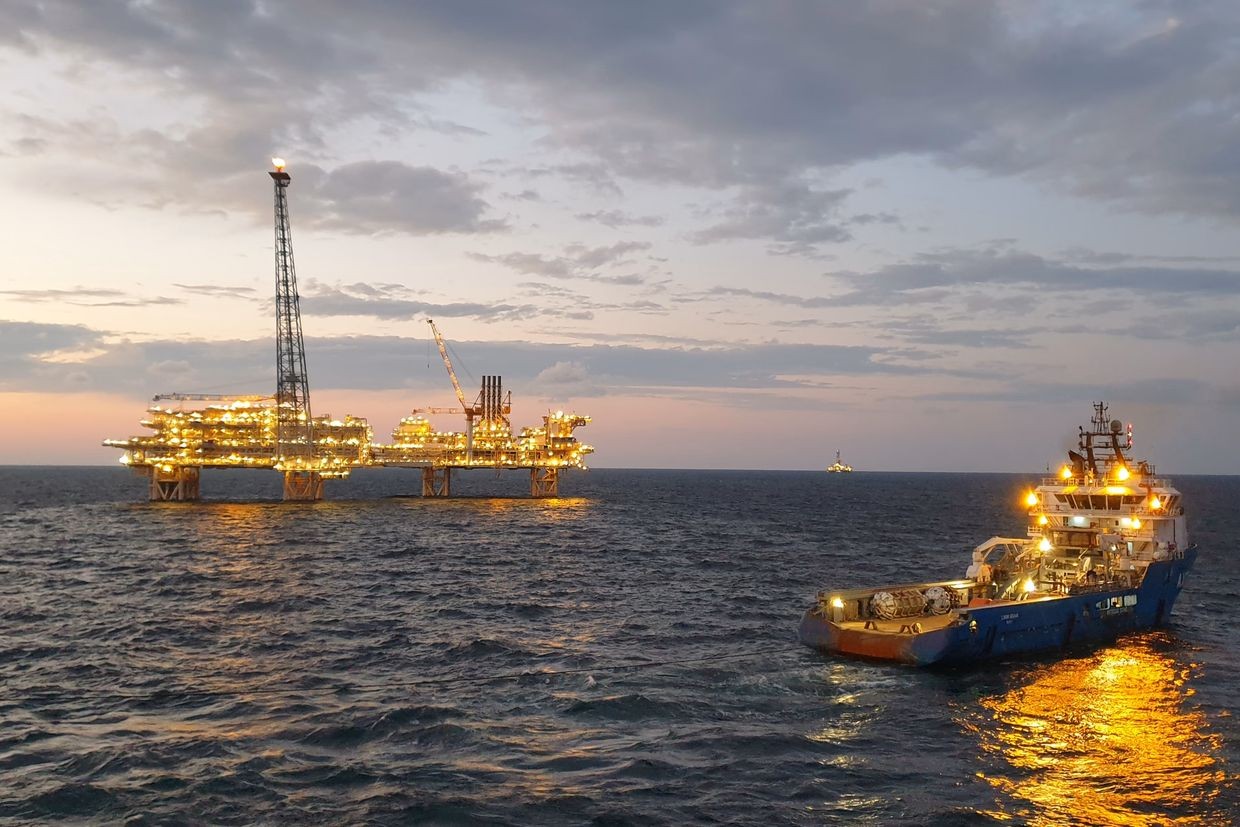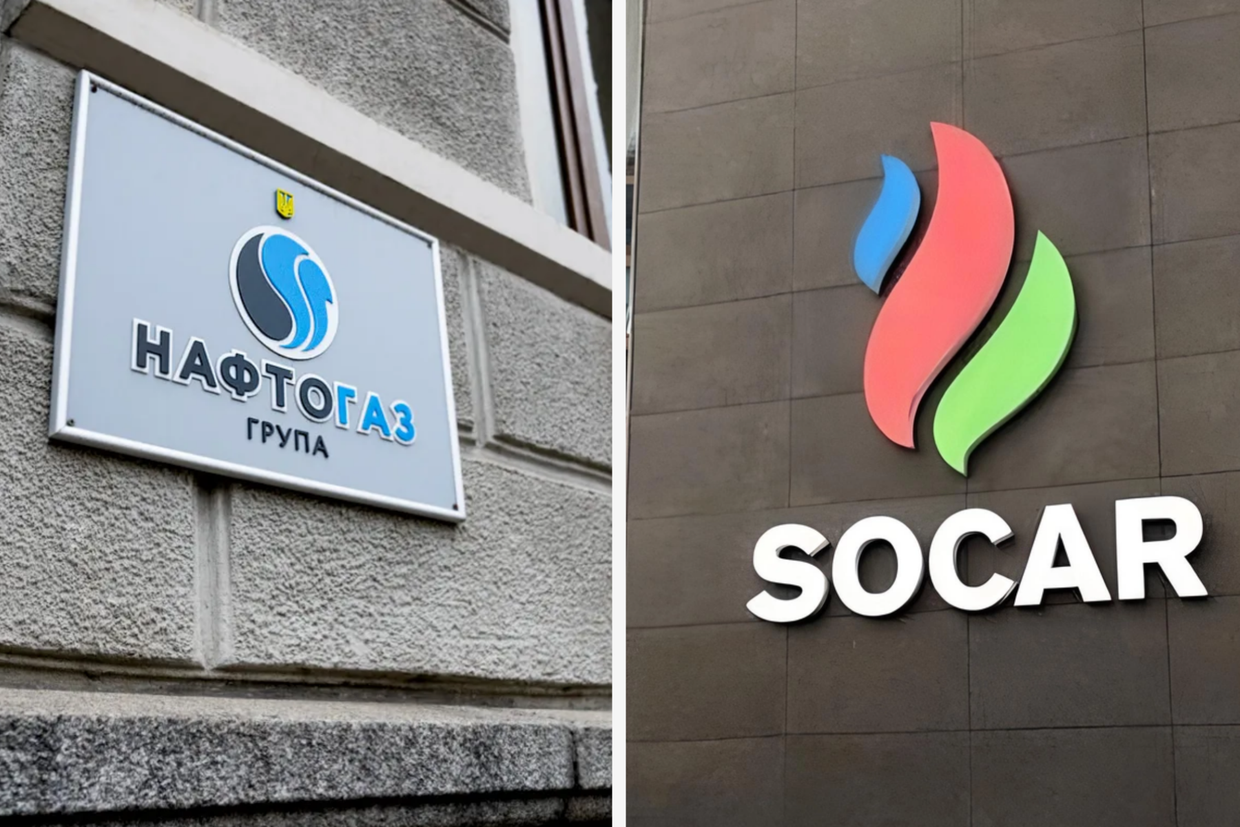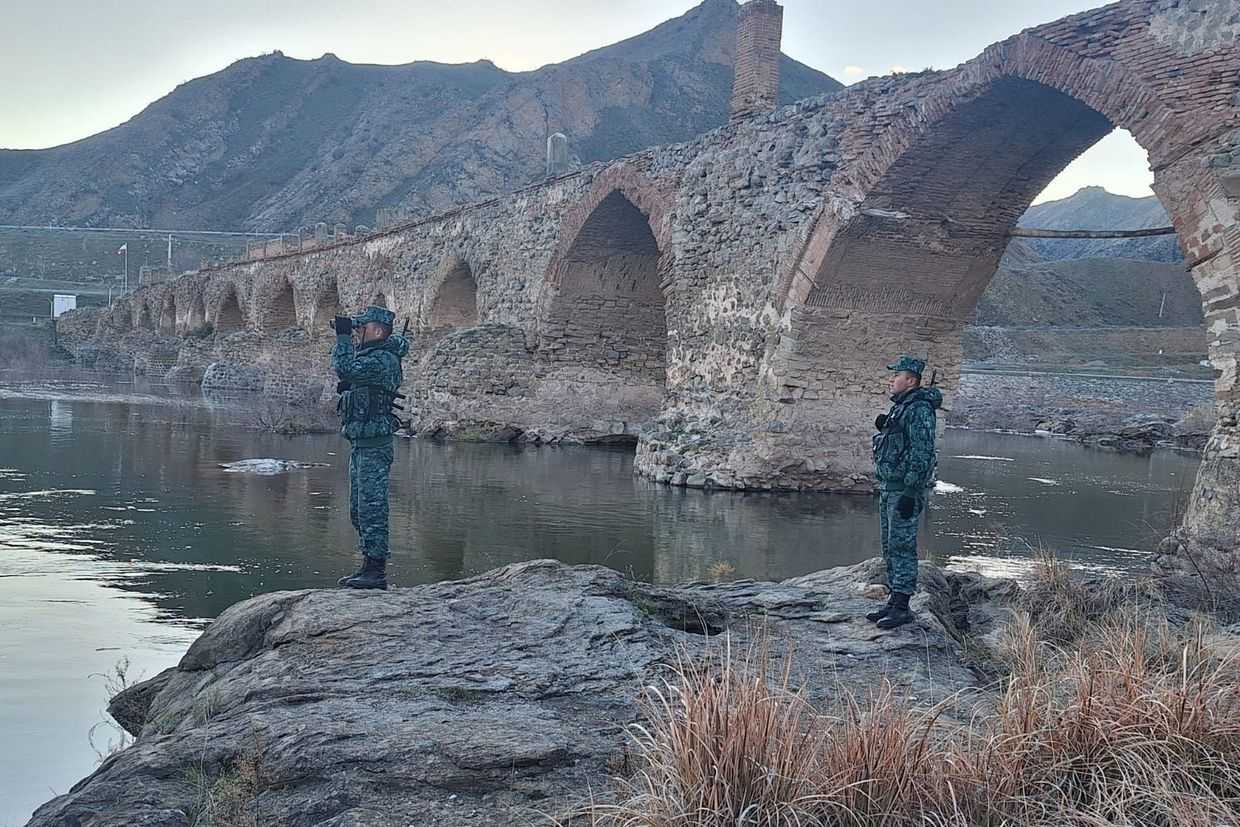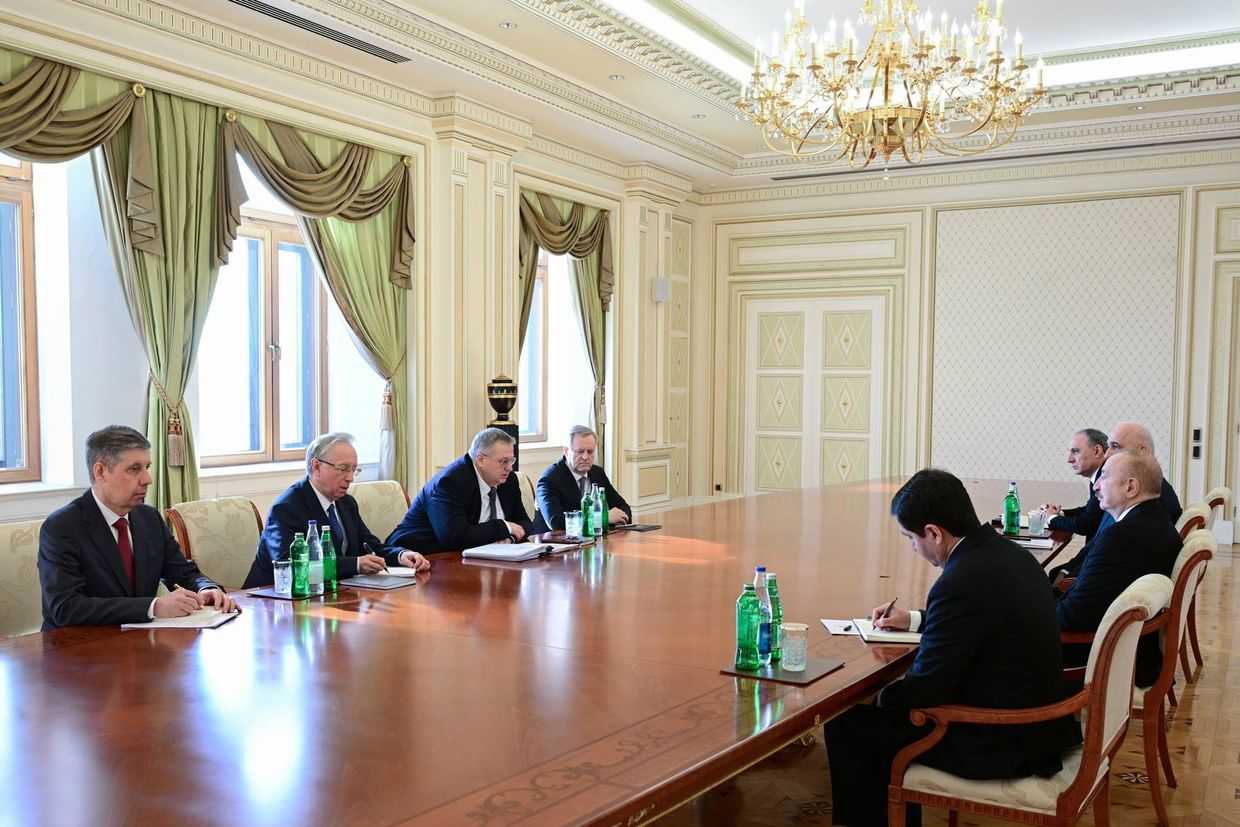
BP’s multibillion-dollar effort to reverse years of declining output at its flagship Caspian Sea oil project is beginning to show results.
The Azeri-Chirag-Gunashli (ACG) block of fields, which accounts for most of Azerbaijan’s crude oil production, pumped about 59 million barrels in the first half of 2025, or 327,000 barrels a day, according to BP’s online data. That’s down from roughly 61 million barrels a year earlier.
While output is still slipping, the pace of decline has eased. The 2 million-barrel drop compares with a 7 million-barrel fall in the first six months of 2024 and a 9 million-barrel decline in the same period of 2023.
The slower pace of decline marks early success for the BP-led group’s $6 billion Azeri Central East (ACE) platform, part of a broader push to extend the life of the ACG field. The ACE platform — the seventh installed at the site — began production in April 2024 and contributed about 25,000 barrels a day in the first half of this year. It’s expected to add as much as 100,000 barrels a day and 300 million barrels over its lifetime.
Stemming the rate of decline
The ACG field, often described as the jewel in BP’s crown, is the largest oil deposit in Azerbaijan’s section of the Caspian Sea. It has been in natural decline since peaking in 2010 at 300 million barrels a year, or 823,100 barrels a day.
BP operates ACG with a 30.37% stake. Its partners include Azerbaijan’s state oil company Socar (31.65%), Hungary’s MOL (9.57%), Japan’s Inpex (9.31%) and Itochu (3.65%), the US’ Exxon Mobil (6.79%), Turkey’s Petrolleri AO (5.73%), and India’s ONGC Videsh (2.92%).
Discovered in Soviet times and brought onstream in 1997, ACG is the centrepiece of Azerbaijan’s oil industry. The signing of its production-sharing contract in 1994 is celebrated annually as Oilmen’s Day, and is often referred to locally as the ‘contract of the century’.
The UK energy giant faced pressure to stem the sharp drop after Azerbaijani President Ilham Aliyev publicly rebuked BP in 2012, blaming the company for a 12% fall in output that he said cost the country an estimated $8 billion in revenue over three years.
While a complete halt in the decline is unlikely given the field’s age, analysts say the trend is stabilising.
‘The pace of decline at ACG has slowed to its lowest level in the past 15 years, thanks to increased output from the ACE platform and several other factors’, Ilham Shaban, an energy analyst in Baku, said.
He cited an increase in production wells to 148 from 143 a year earlier, higher volumes of gas re-injected into wells, and the resumption of technical water injection at the Chirag platform.
ACG’s recoverable reserves are estimated at 1 billion tonnes, and over 60% of that has been extracted in the past 28 years, Shaban added.
‘BP remains committed to enhancing production, maximising recovery from this world-class reservoir, and extending its operational life’, Tamam Bayatli, a spokesperson for the company’s Baku office, said in a written response to questions.
‘We’re applying innovative methods, leveraging global expertise, and introducing cutting-edge technologies to ensure the long-term efficiency of production from ACG’, she added.
From oil decline to gas and solar expansion
While Azerbaijan’s oil reserves are maturing, its natural gas outlook is improving. BP also operates the country’s largest gas development project of Shah Deniz with a 29.99% stake. Its partners include Russia’s Lukoil (19.99%), Turkiye Petrolleri AO (19%), Azerbaijan’s state-owned Southern Gas Corridor company (16.02%), and Iran’s NICO (10%).
In the first half of 2025, Shah Deniz produced about 14 billion cubic metres of gas and 2 million tonnes of condensate, or light oil, both unchanged from a year earlier. Azerbaijan’s total natural gas production slightly increased to 25.2 billion cubic meters in the period from 25.1 billion cubic metres the year prior.
In June, BP and its partners approved a $2.9 billion Shah Deniz Compression project, which includes an unmanned offshore platform to enable production of an additional 50 billion cubic metres of gas and 25 million barrels of condensate. The first gas is expected in 2029.
That same month, BP also joined two other offshore Azerbaijani oil and gas blocks in the Caspian, buying a 35% stake in both Karabakh and Ashrafi-Dan Ulduzu-Aypara (ADUA). While Socar retains a 65% interest in both Karabakh and ADUA, BP will operate the projects.
Other areas of expansion include another Caspian Sea development project, Shafag-Asiman, which is estimated to hold significant reserves of natural gas and condensate. A production-sharing agreement for joint exploration and development of the Shafag-Asiman block was signed between BP and Socar in October 2010.
In addition, in 2024, BP and its partners also amended the ACG production-sharing agreement to include exploration and development of non-associated natural gas reservoirs beneath the current oil structure. BP estimates reserves at up to 113 billion cubic metres, with first gas expected by late 2025 or early 2026.
Turkey's TPAO joined the Shafag-Asiman project in June 2025, acquiring a 30% stake, while BP and Socar each hold a 35% stake.
Notably, the EU is looking to Azerbaijan and other new suppliers as the continent plans to phase out Russian oil and gas. Azerbaijan signed a memorandum of understanding with the European Commission in July 2022, shortly after the Russian invasion of Ukraine, aiming to double its natural gas exports to Europe to 20 billion cubic metres a year by 2027.
Azerbaijan has also signed contracts to supply gas to 12 European countries, of which Italy has become the largest buyer. In 2024, the country took almost 11 million tonnes of oil from Azerbaijan, according to the State Customs Committee.
In total, 25 countries bought almost 24 million tonnes of oil from Azerbaijan last year. Other major buyers included the Czech Republic, which imported 1.77 million tonnes, and Croatia, which took 1.44 million tonnes. Syria was the most recent country to start receiving Azerbaijani gas under a swap deal via Turkey in August.
BP, in partnership with Socar and the Azerbaijan Business Development Fund (ABDF), is also building a 240-megawatt solar power plant in Azerbaijan’s Jabrayil district, which Azerbaijan took control of during the 2020 Second Nagorno-Karabakh War. A final investment decision on the $200 million project, called Shafag (Sunrise), was announced in Baku in June. BP holds a 50.01% stake, while Socar and ABDF own 39.99% and 10%, respectively.
The plant will supply electricity to the BP-operated Sangachal terminal south of Baku, helping to free up natural gas currently used for power generation at the facility for export.











